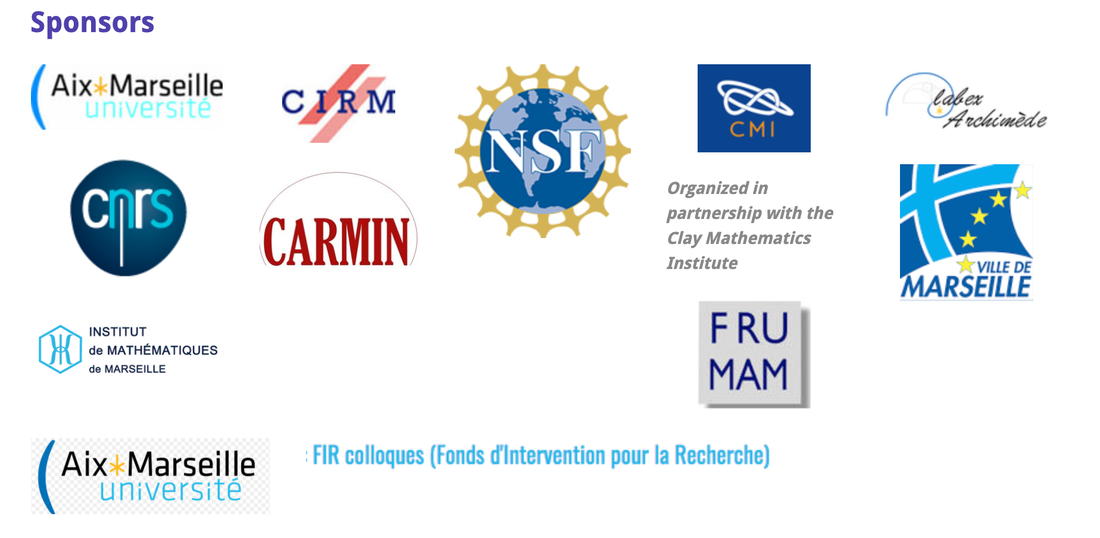Boundaries of Groups (1906)
Bords de Groupes
Dates: 18-22 June 2018 at CIRM (Marseille Luminy, France)
|
DESCRIPTION
This workshop aims to address the following topics regarding the boundaries of hyperbolic, relatively hyperbolic and CAT(0) groups.
Cannon’s Conjecture and related conjectures: If a torsion-free hyperbolic group group has boundary at infinity a 2-sphere, must the group be a lattice in SO(3, 1)? This is one of the remaining outstanding problems in 3-dimensional topology. Some related work was done by Kapovich-Kleiner (boundary a Sierpinski carpet). Higher dimensional topological analogues are known (Bartels-Lück-Reich, Lafont-Tshishiku). Relation to QIs: In some cases, properties of the boundary can be used to “fill in” and obtain rigidity results about spaces. For example Bonk-Schramm related the existence of bi-Lipschitz homeomorphism of boundaries to the existence of almost-isometries between spaces. CAT(0) boundaries: A famous example of Croke-Kleiner shows that the boundary at infinity of a CAT(0) space is not a QI-invariant. However, recent work of Charney- Sultan shows that certain subsets of the boundary are QI-invariant. Are there other naturally definite subsets of the boundary that are QI-invariant? Boundaries of Hyperbolic Buildings: These provide an important testing ground for studying metric properties of the boundary. Relatively hyperbolic groups: What is the “best” boundary for a relatively hyperbolic group? The boundary of the hyperbolic space on which the group acts geometrically finitely (known as the Bowditch boundary)? A CAT(0) type boundary? Is there a way to put a quasi-conformal structure that is meaningful on either of these boundaries? Rigidity: What group theoretical information can be obtained |
SCIENTIFIC COMMITTEE
ORGANIZING COMMITTEE
SPEAKERS
|


